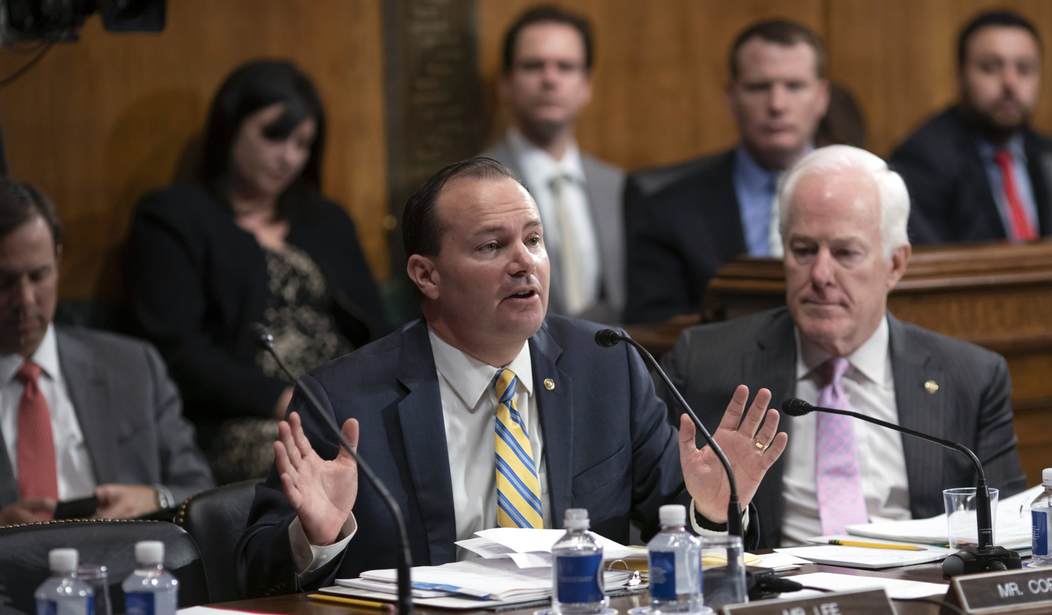WASHINGTON – Sen. Mike Lee (R-Utah), a Senate Judiciary Committee member, said bipartisanship in Washington isn’t always “a good thing,” using the $1.3 trillion omnibus spending bill Congress recently passed as an example.
According to the Treasury Department, the projected deficit for FY2018 is $955 billion.
Lee, who voted against the bill in March, said not one member of Congress had an “adequate opportunity” to review the 2,232-page legislation before the final vote.
“It came into our email inboxes at about 8:35 p.m. Miraculously, or tragically, I should say, the House of Representatives passed it into law on the House side before lunch the next day. The Senate passed it against my ‘no’ vote in the middle of the night the following evening,” Lee said on a recent conference call with his Utah constituents.
“Not one member of the United States Senate, not one member of the United States House of Representatives had an adequate opportunity to review that 2,232-page spending bill,” he added.
Lee said his staff tried to review as much of the bill as possible, but it did not read like a “fast-paced novel.”
“It takes a lot of time to go through because it contains countless cross-references to other statutory provisions and it can be very difficult to discern,” Lee said. “This is one of the things that is most broken about Washington, perhaps the single most frustrating thing about Washington, to me, is the fact that there is way too much willingness for people to simply take a bill like this and, because their particular party’s majority or minority leader says to do so, they are willing to vote for it.”
Lee said the passage of the legislation was bipartisan, which is “not really accurately described as cooperation.”
“It’s the evil cousin of cooperation known as collusion. You see, cooperation is what happens along with compromise when two or more people get together and, while they have some disagreements, they come up with a mutually agreeable, mutually beneficial decision that inures to everyone’s benefit. Collusion is what happens when two or more people get together and come up with something that’s good for them but hurts a lot of other people. This to me felt a lot more like collusion.”
Lee argued that the legislative process behind the spending bill did not allow the American people to have a voice and offer input to their representatives.
Lee said Republicans should continue to vote against bills like the omnibus in the future, adding that members should be allowed ample time to review bills and propose amendments to improve the legislation.
“I’m going to continue to encourage the president to veto legislation like that,” he said.
Lee noted that he’s worked with Senate Democrats on a number of issues such as criminal justice reform but added that the omnibus bill was a different story.
“There is a problem, also, with assuming whenever a lot of Republicans and a lot of Democrats agree that it’s necessarily a good thing,” he said. “The omnibus measure was something that was bipartisan, but that is an example of collusion masquerading as bipartisanship.”









Join the conversation as a VIP Member